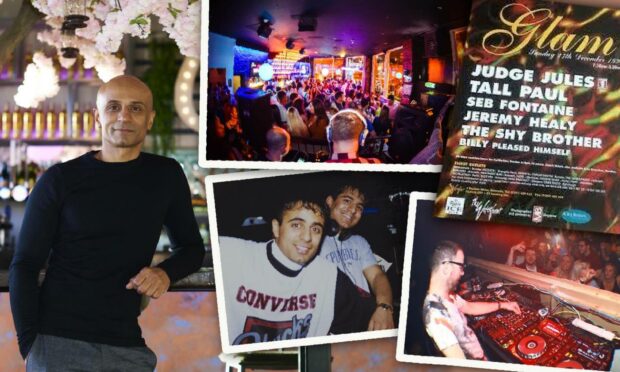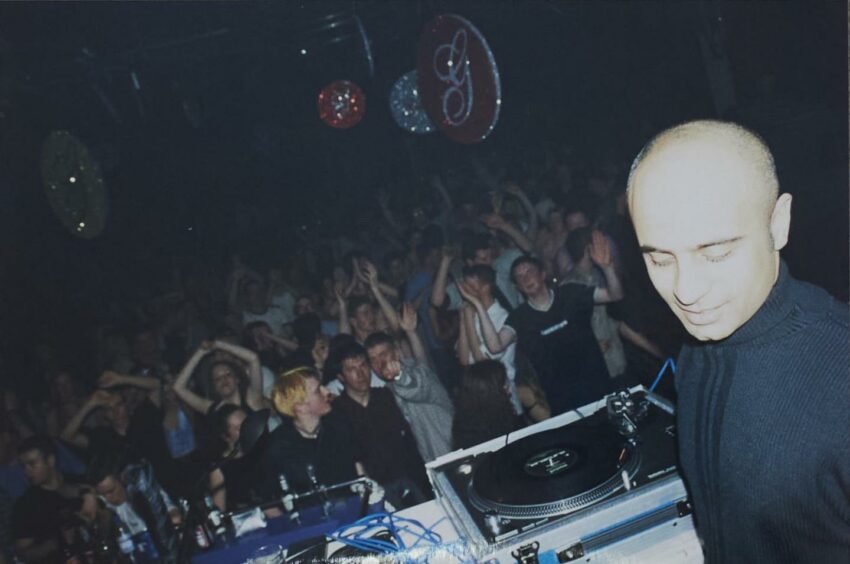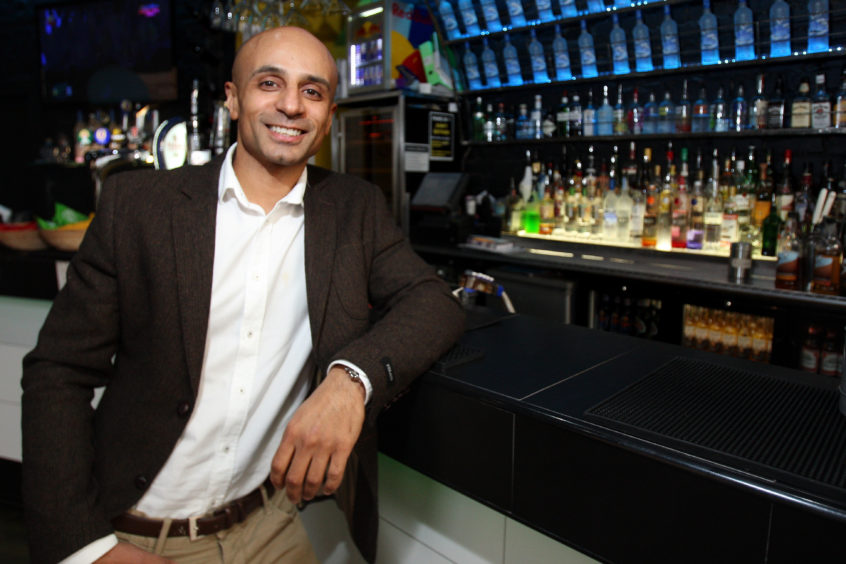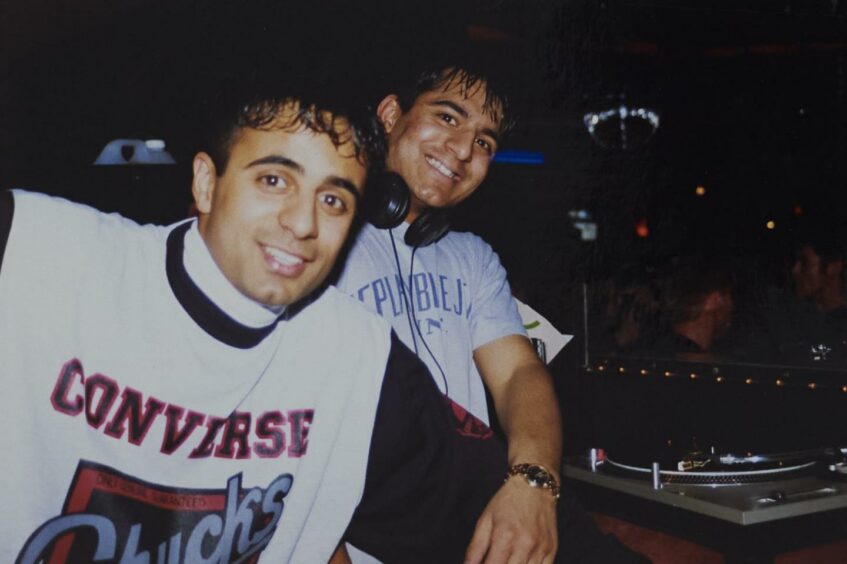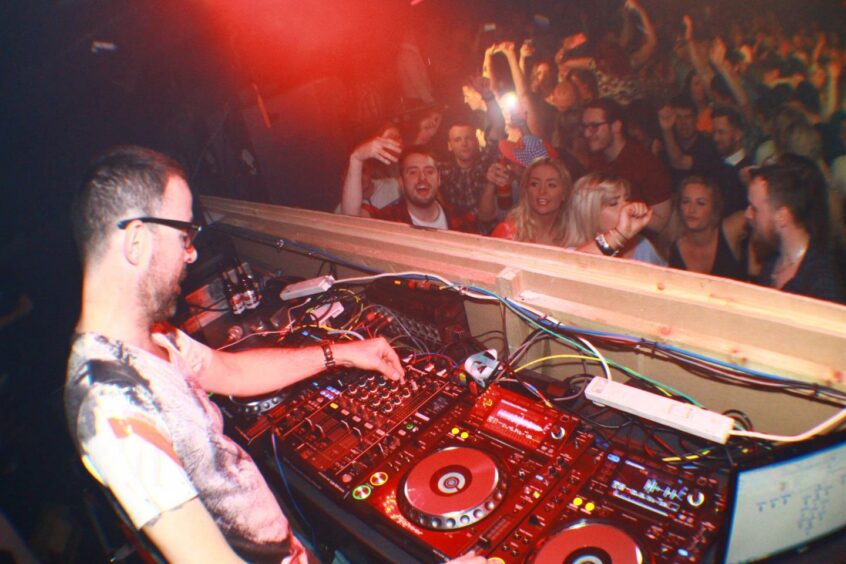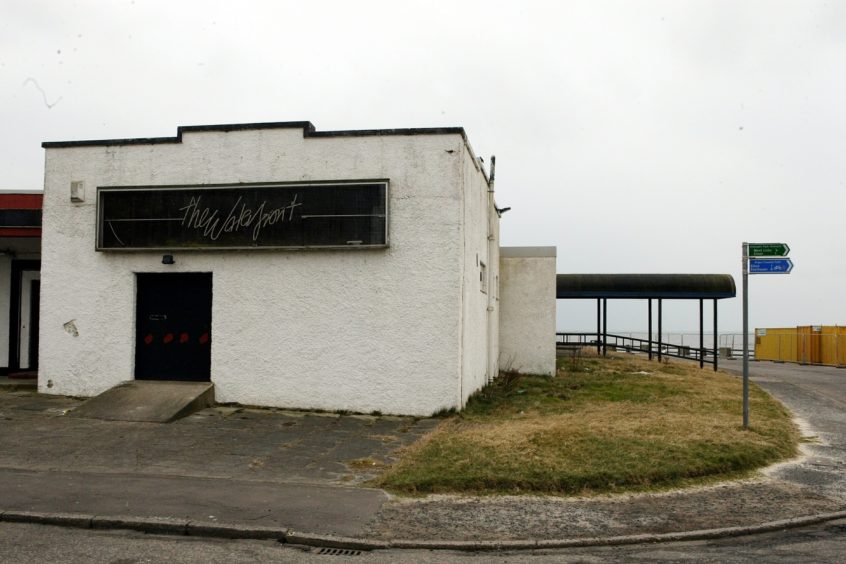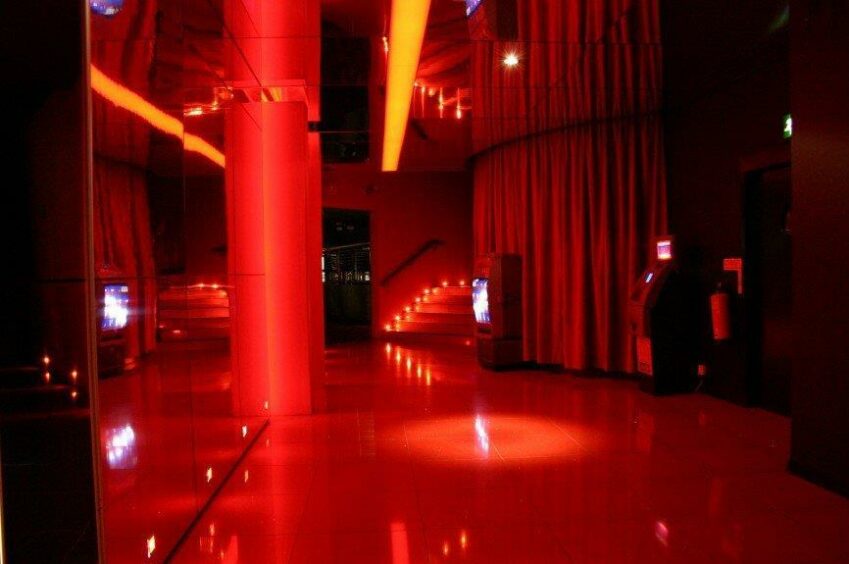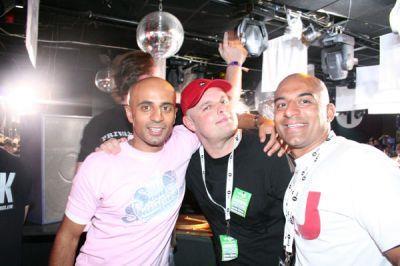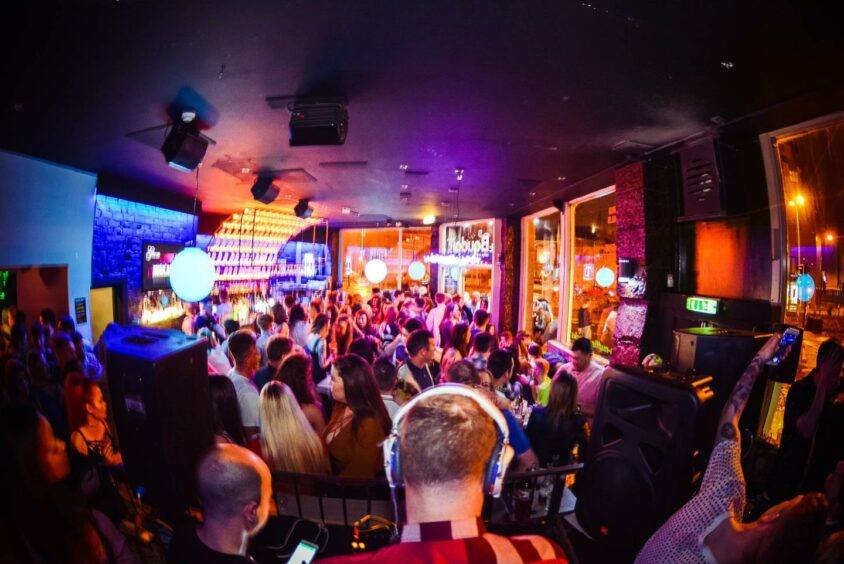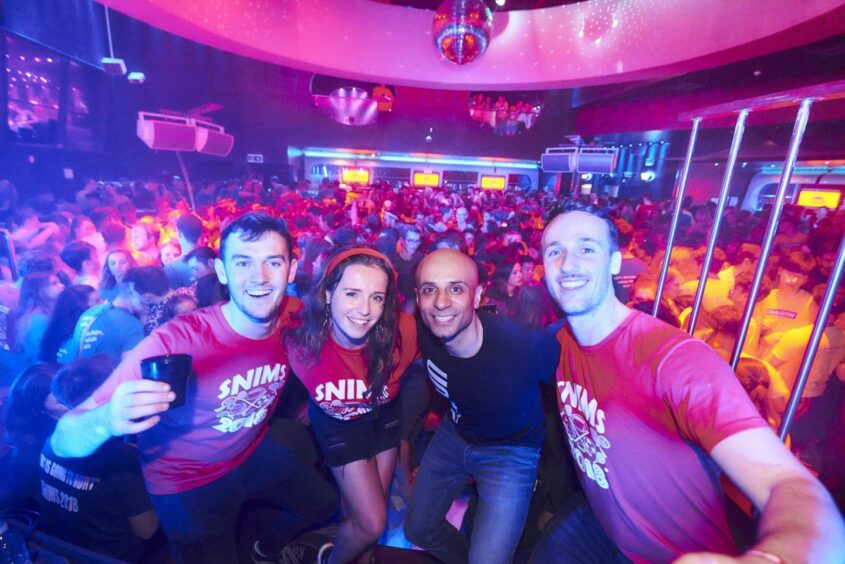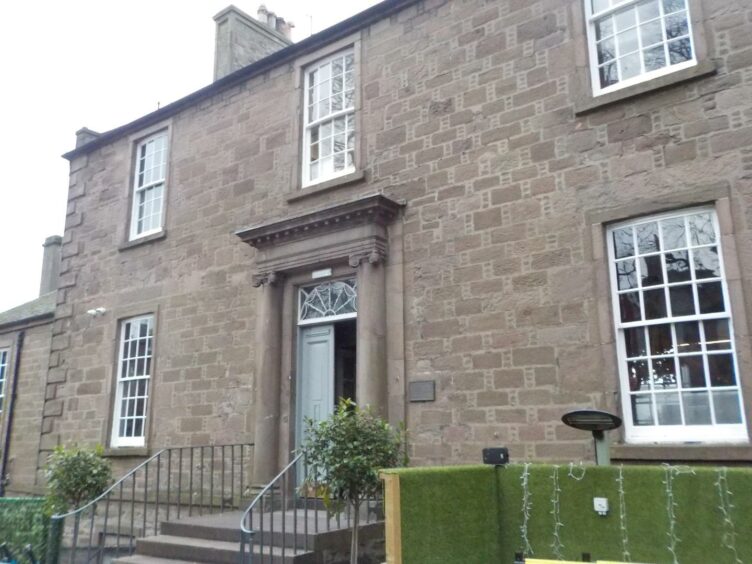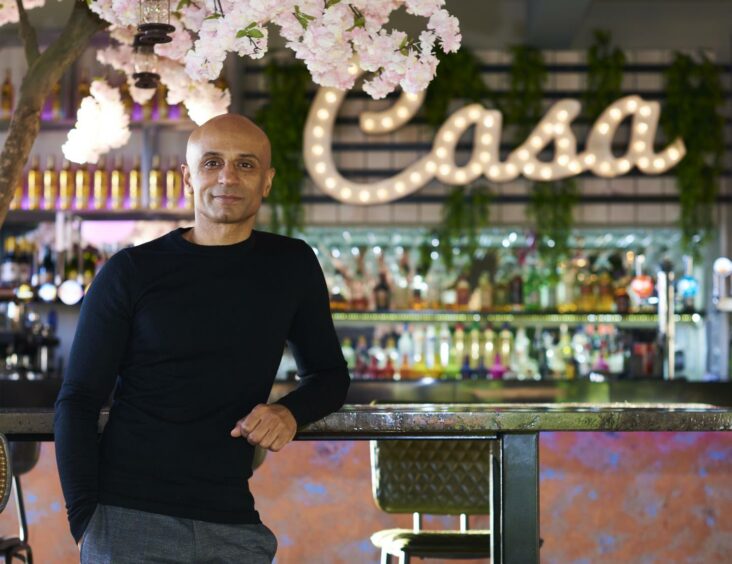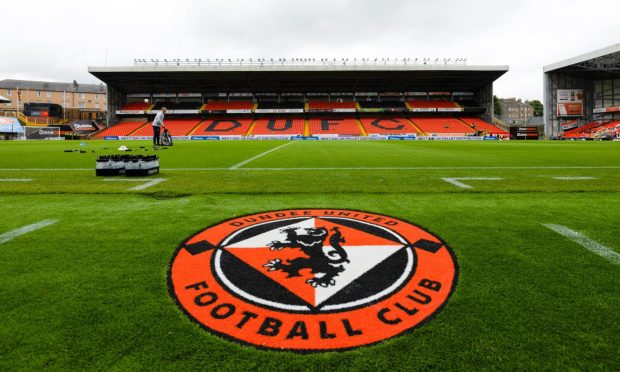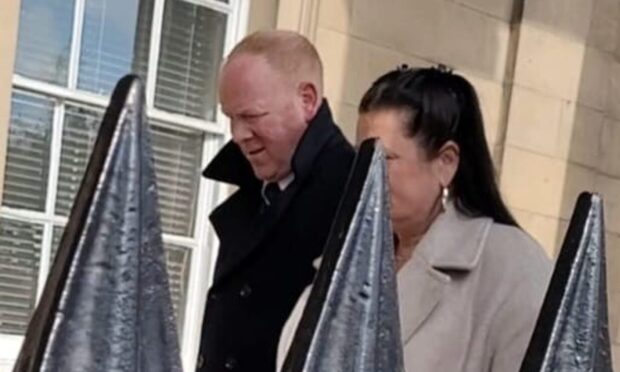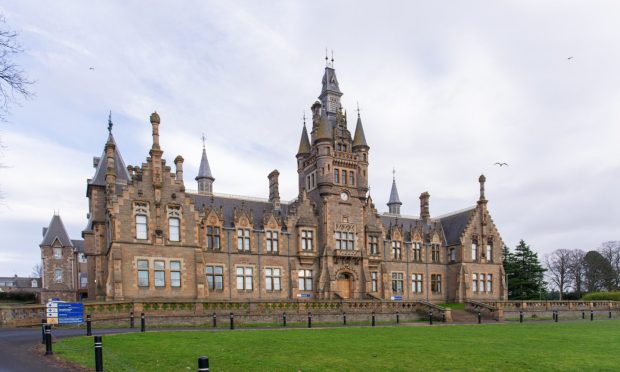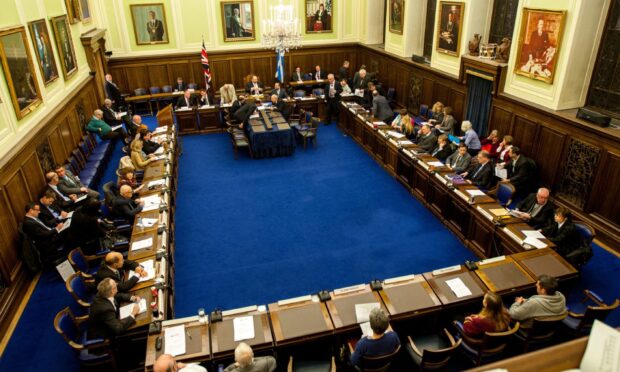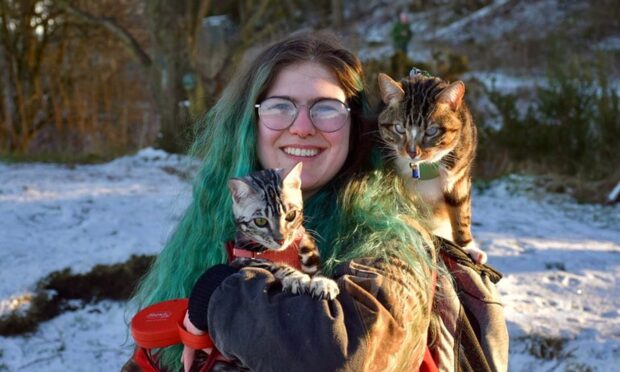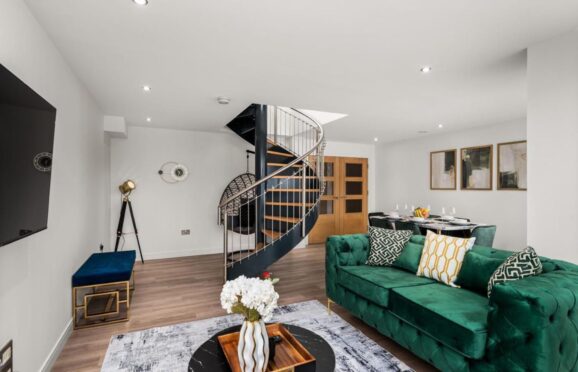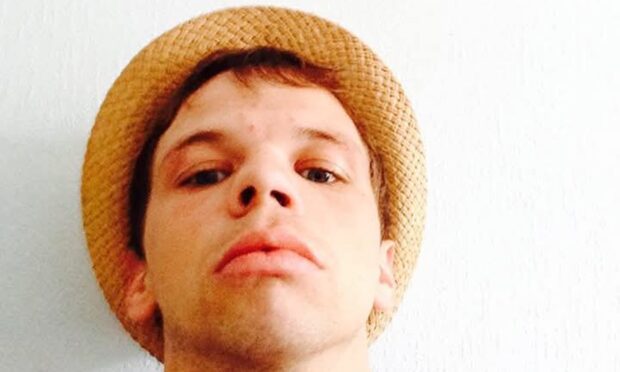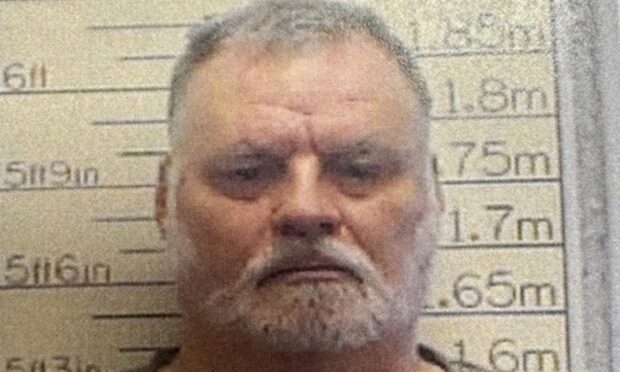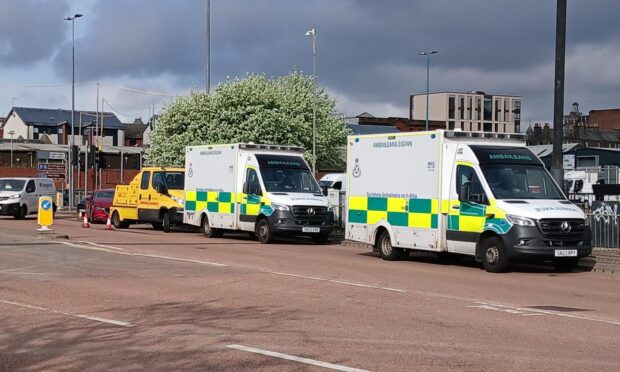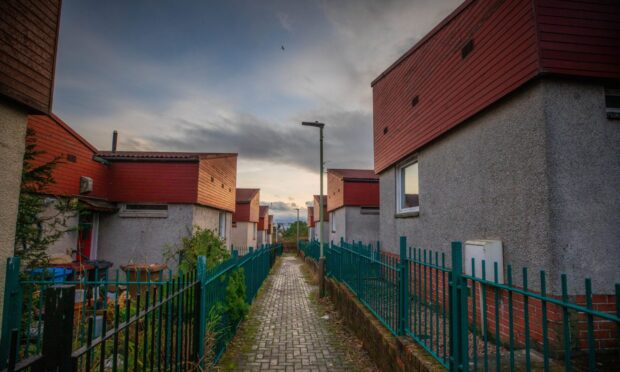Tahir Ramzan has experienced the highs of the golden age of nightclubs and is hopeful those days will return soon.
The Dundee man, still in his 40s, is a veteran of the local clubbing scene having spent most of his adult life either as a DJ, club owner, promoter or – at some points – all three simultaneously.
Alongside his brother and former business partner Shahid – better known as Shy – Tahir co-launched and managed the Glam nights that were a huge part of the clubbing scene in Tayside, Fife, Aberdeen and across Scotland in the late 1990s and early 2000s.
Glam attracted the UK’s top dance DJs, with big names such as Judge Jules, Paul Oakenfold, Mauro Picotto, Seb Fontaine and Danny Rampling gracing the likes of Fat Sam’s in Dundee, Waterfront in Arbroath, Blue in Inverness and various venues in Aberdeen.
The brand went worldwide, with the brothers becoming the first Scottish promoters to have a clubbing presence in Ibiza before later embarking on a tour of Poland that at times “was like walking into a mafia movie set”.
Glam’s finest night – and one of the most memorable of Tahir’s life so far – was on December 27 1999, when 10,000 people defied heavy snow to cram into Aberdeen Exhibition and Conference Centre for a special show.
“These days if you have a 10,000 capacity in a dance event it is usually in multi rooms or multi tents, but we had it under the one roof, which has never been repeated to this day,” says Tahir.
“That was an achievement and accomplishment that I will never forget.
“It is something people still talk about to this day.”
More recently, Tahir has headed up Dundee nightspots London Nightclub, Boudoir Bar, Industry and Carbon.
For the past two years he has been in charge of Perth Road bar Casa Dundee alongside best friend and business partner Jimmy Fyffe.
Tahir says the 1990s and 2000s “was a magical time for people with everyone connected and without a mobile phone”.
Though clubbing in the modern day is much quieter, Tahir thinks the glory days will eventually return. “There is a scene emerging but we are years away from it yet,” he says.
In this feature Tahir talks about growing up in poverty, the rise of Glam, hosting the BBC Radio One Big Weekend after-parties in Dundee, his latest venture Casa and gives his views on vaccine passports.
It is split into the following sections:
- Paradise in poverty
- Glam takes on the world
- Special and funny memories of Glam
- ‘Magical’ London Nightclub
- Hangover and comeback
- Casa, Covid and vaccine passports
Paradise in poverty
Tahir Ramzan spent his earliest years in the Parkhead area of Glasgow before the family moved out to nearby Rutherglen.
His father Mohammed ran a local newsagent shop while mother Qulsoom looked after the family home.
“We struggled to make ends meet,” Tahir recalls. “We never had family holidays, the latest toys or anything like that. We weren’t rich.”
Education at Stonelaw High School was “a blip” and he left with few qualifications. “I enjoyed it but never enjoyed it – like any other teenager,” he says.
“The teacher said I was brainy but kept saying I was on the wrong path.”
‘Back then you had to be really smart to get in’
The first steps on a path that Tahir would find so rewarding were taken at the age of 16 when he and Shy sneaked into Glasgow nightclub Hollywood Studios.
“I borrowed my dad’s suit because back then you had to be really smart to get in – you needed a suit, trousers and shoes,” he says. “I was blown away by the sound system and lights.”
This was the late 1980s and Tahir was hooked by the beats.
“Music always had to have a certain baseline,” he says. “It could be pop music, it could be dance music of that era – it could be Kylie Minogue – as long as the baseline was good and it made people dance.”
He used to sneak into his uncle Bashir’s car and press the ‘loud’ button to enhance the bass.
“It would probably be considered a terrible sound system now but back then you could listen to it in the car so it wouldn’t be heard in the house.”
Examples of songs that hit the spot for Tahir during that era were Human Resource’s Dominator and No Limit by 2 Unlimited.
‘The rave scene was emerging’
Within a couple of years Tahir was driving his mother to distraction by blasting out music from his recently acquired Technics 1210 decks.
The brothers formed links with several Glasgow nightclub owners who allowed them to hone their skills using their equipment.
They began playing at local venues that they promoted by the old-fashioned method of handing out flyers in the street.
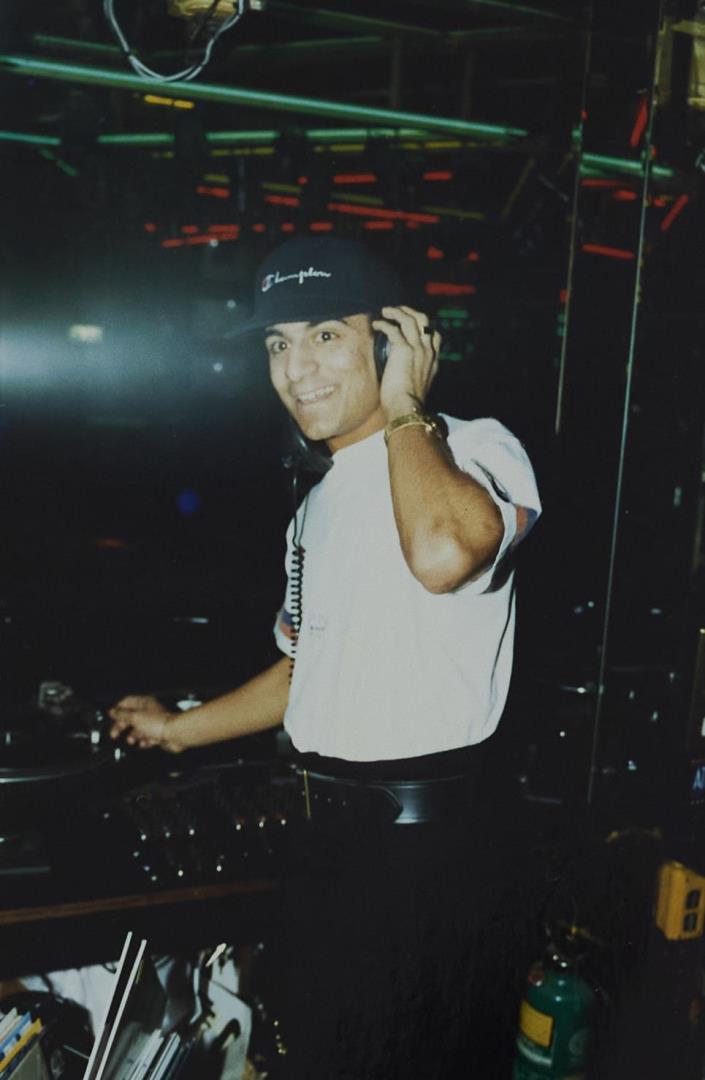
“The rave scene was emerging and by this time we were well connected with up-and-coming DJs such as Scott Brown and QFX, and they were turning themselves into a business,” says Tahir.
“We started doing raves in Scotland and ended up in Dundee somehow.”
Glam takes on the world
That “somehow” was through the formation of the Glam brand in 1996.
Through the power of networking Tahir and Shy attracted the cream of house music – often DJs from England – to regularly perform north of the border.
They owned no venue so they put in the hard yards across Scotland and successfully persuaded club owners from each city and a number of towns to stage Glam nights.
Fat Sam’s in Dundee was one of the takers and Tahir would eventually settle in the City of Discovery.
“Glam was like Cream. We had a Glam sound and it was all about a certain type of music that people enjoyed, and girls and guys dressing up to look good and making an occasion of it,” says Tahir, who continued to DJ on some of the nights.
“Once a month we had big events and then there were weekly residencies in more or less the same places.
“Mauro Picotto became almost like a Glam resident, Nigel Benn used to play here and Judge Jules also became a resident for Glam.”
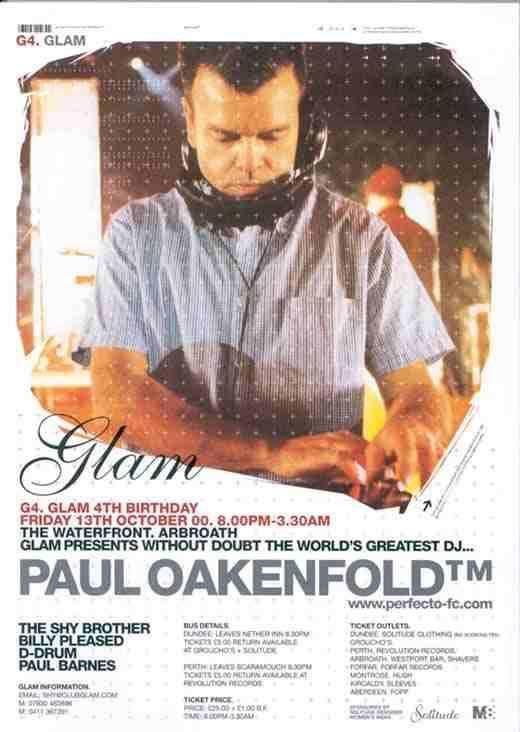
“Paul Oakenfold was someone you could expect to see at Glam at least once or twice a year,” Tahir adds.
“He was huge. He was my idol and when one of the world’s top DJs plays at your show and wants to return here you know you have achieved something – it’s like having one of the best footballers in the world.
“He was a very talented guy and getting him was very difficult. We had been trying and trying. The guy had been playing throughout the world so to come to a place like Dundee or Arbroath, rather than going to China or America, was hard work.”
‘You might be big in Scotland but in Ibiza…’
If there was one year when the brothers put in the hard work it was 1999.
It was an historic one for Glam for two reasons. The first was becoming the first Scottish club show to be transported to Ibiza, where it featured throughout the summer.
“When you go to Ibiza you realise where you are in the scale,” reflects Tahir. “You might be big in Scotland but in Ibiza you had Chocolate Orange, Gatecrasher, Cream was just starting and there were another few nights that don’t exist anymore. It was huge.
“It was a fantastic experience but I wouldn’t do it again because we lost a lot of money.”
The second was the December show at Aberdeen Exhibition and Conference Centre, featuring DJs Judge Jules, Paul Oakenfold, Seb Fontaine and Danny Rampling.
“It is something that will probably never happen again, ever,” Tahir says.
“To get 10,000 people under one roof when it is not a concert is very difficult. You have to have a big act.
“It was seriously hard work and I felt ill after it. The stress of putting it on was incredible.
“It was only me and my brother doing it. We were meant to have 100 staff helping out but ended up with 50 staff and everyone was running around.
“These big DJs were coming and we had to transport them from the airport to the hotel and to the gig.
“It was an amazing experience. At the time people said it would never work – ‘you should go to Glasgow’ – but we chose Aberdeen and it did work.
“The weather was against us, though, because it snowed. It was a bad ending to the show because it wouldn’t stop.
“It wasn’t easy for anyone to get home but that makes it more special to think about. It is something people still talk about to this day.”
Special and funny memories of Glam
Also still spoken about to this day are some of the hilarious incidents that have taken place at Glam over the years.
Tahir can’t necessarily remember the date or venue, but the memories are abiding.
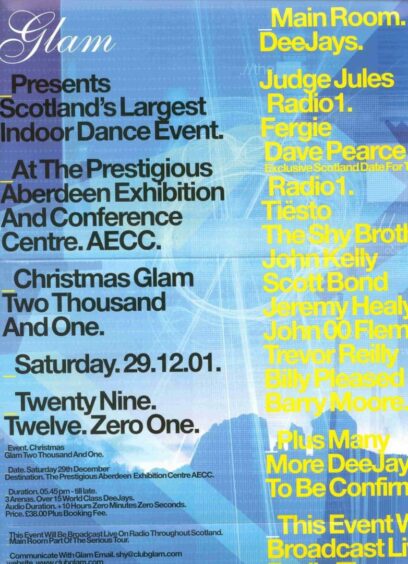
“One time, a famous DJ behind the decks had far too much to drink and spilt drink on the mixer and the music went off.
“There were then 2,000 people standing in complete silence so they started their own little sing-song while someone was running around trying to find a new mixer somehow.
“We had 15 minutes of people chanting ‘here we here we go’ and it was something I always remember.”
The music went off on another occasion, this time in Glasgow.
“I remember one guy became a comedian and began shouting some jokes out. I couldn’t believe the confidence of this guy to be cracking out jokes one after another until the music came back on.”
‘He was pretending to be a member of the police force’
Another amusing recollection was of the queue outside Waterfront in Arbroath before one Glam show.
Dundee comedian Willie Hools was among almost hundreds of people waiting to enter the club.
“There were 2,000 people and the queue was absolute chaos,” recalls Tahir. “He had some police outfit on with a high-viz jacket and in a comical way he was trying to direct the crowd to queue up properly.
“Thinking back it is as funny as hell – he was pretending to be a member of the police force and people were seriously queuing up for him but he was actually taking the mick.
“You really had to be there – he was making people go in single file. I wish I had the confidence to do that.”
‘Everyone was on the same wavelength’
Magical is a word often used by Tahir to describe the Glam glory days.
“Coach after coach would be going up the A92 from Dundee to Arbroath,” he remembers.
“If you were running late for your gig and saw all these coaches in front you just knew they were all going to the same place and everyone was on the same wavelength.
“It was a magical time for people with everyone connected and without a mobile phone.”
‘It was like walking into a mafia movie set’
In 2001 Glam was on the move again – this time to Poland, where Tahir and Shy toured the likes of Krakow and Warsaw for three weeks.
“It was a surreal experience because nightclub owners there are businessmen and when you went in their offices it was like walking into a mafia movie set,” says Tahir.
“It was quite weird, you just know that you don’t mess with anyone – or you don’t get paid. It wasn’t like being in the UK at all.
“It was fun but I prefer the UK.”
‘Magical’ London Nightclub
In 2004 Tahir and Shy took on a venue of their own, opening the London Nightclub in Meadowside.
Adapting their output to changing music tastes, the 700-capacity club had an RnB focus while still providing the Glam experience in the ‘G Room’.
“We were getting people from Aberdeen and Edinburgh coming to London Nightclub every single week.
“We had Glam nights there and the RnB scene was now the big thing because the dance scene was dying.
“The G Room was magical. People travelled from other cities and towns to be in this one room. We had five rooms but they wouldn’t leave to go anywhere else in London Nightclub.”
‘Pete Tong did his show from the club’s piano bar’
Tahir considers the 10-year period from 1996 as both the peak for Glam and clubbing culture in general.
That final year, 2006, was a particularly big one because the brothers hosted one of the most prestigious night-time events in Dundee’s history.
In May, BBC Radio One held its Big Weekend in the city, attracting acts including Snow Patrol, Muse, Keane, Pink, Sugababes, Editors and Razorlight to Camperdown Park.
London Nightclub was chosen for the event after-parties on each night.
“Pete Tong did his show from the club’s piano bar, which was amazing. You had all these famous guys turning up, such as Chris Moyles, soap stars and a couple of footballers from Chelsea.
“On the Saturday there was a live broadcast on Radio 1 from London Nightclub after they had done Camperdown. That’s something I will never see again in my life – it was one of the most surreal experiences ever.
“It was just magical to have all these acts, celebrities and customers all under one roof. We had various celebrities and I can’t name them all but all of the Radio 1 team were there – every single one.
“Then on the Sunday we had the closing party with Trevor Nelson. That was surreal again because it was a different scene with RnB music.”
Hangover and comeback
It ended up as a last hurrah because, explains Tahir, “after that, everything started changing. The crash was around the corner”.
The financial crisis of 2007/08 coincided with clubbing losing its mass appeal. The London Nightclub shut down and the brothers have not worked together since.
Tahir recalls: “I had burnt myself out and didn’t want anything to do with bars, or nightclubs, or music after that.”
‘I recreated some sort of a scene again’
The bug returned in 2010, when he took over the Boudoir Bar in Temple Lane. The small cocktail bar gave him a taste of a comeback and he restarted Glam, first at a nightclub in the Wellgate and then, in 2014, at Industry in Seagate.
“At Industry I recreated some sort of a scene again with dance and commercial music,” Tahir says. “Big-name DJs appeared including Vini Vici and Judge Jules was also there.”
In 2018 he took over Carbon at S Ward Road but he only lasted a year.
“I enjoyed it but I felt I was stuck in a time warp – the past and not the future,” Tahir says.
“Nightclubs have had their day and I don’t believe there is a nightclub scene anymore.
“It was hard for me to say this but customers need to be going out four nights a week, or it is very hard to run as a business.
“Festivals are the new nightclubs. This is the fashion now, from what people want in a night out.”
Casa, Covid and vaccine passports
In 2019 Tahir and city businessman Jimmy Fyffe took over the former Clydesdale Bank on the Nethergate.
In January 2020 a refit of the premises began with the aim to open it as a bar called Casa four months later.
But the Covid lockdown left the entire project in limbo. “It was an absolute nightmare,” Tahir says. “You had put your heart, soul and dream into something, made it a reality. You had invested into it.
“The next minute the world has closed down. No one’s telling you anything. It was three weeks to flatten the curve. Then all of a sudden hospitality is closed.
“You can’t talk to anyone and no one is telling you it is going to be okay. It was the most horrific experience you can imagine when your livelihood and earnings are all put to a stop.
“You didn’t get any funds or help – that came later – and you had to fight for it.”
When it finally opened, Casa was a bar with a very different feel to his previous venues.
“Young people dictate and if you see their Instagrams they go to venues similar to Casa,” Tahir says. “We have house music upstairs at Casa – there’s people loving it – but it is not a nightclub. I don’t wish it to be a nightclub.
“We have been rebranding Glam for the new generation. It is about the new young generation coming through, about what they expect from clubbing and view music. They are more about the music than the DJs. There is a scene emerging but we are years away from it yet.
“Clubbing has changed. It’s not about dance floors anymore. It’s become like a house party – and there are no dancefloors in a house. It’s just about spending time with your friends and enjoying the atmosphere. As long as the music is right then it can work.”
‘Do they leave them on their own to get a taxi home?’
Until recently, vaccine passports had cast a cloud over the hospitality industry and Tahir is pleased that they have been withdrawn in Scotland.
“As a business owner I have lost count of the amount of people who have come up to me at 10pm and asked if I can charge their phone for them,” he says. “If I can’t, and every venue requires a passport, then that is their night scuppered.
“Also, what happens if they drop their phone and the screen smashes? If they are with a group of six people do the other five go home with them or do they leave them on their own to get a taxi home?
“Do you really want to go out with a piece of piece of paper in your back pocket? What about if it gets soaking wet somehow or gets dropped?
“The night trade is about drink and accidents happen. It’s also morally wrong.”
‘I have beautiful memories and made some beautiful friends’
With more certainty about the future than in any time since early 2020, Tahir’s next aim for Casa is to recreate the buzz of his younger years.
“I never did this for the money, ever. I have beautiful memories and made some beautiful friends,” he says.
“So many customers have come up to me and said ‘I remember you doing that gig’. To have had such an impact on people’s lives’ means a lot to me.
“I have done tours everywhere and DJ’d in front of 10,000 people but DJing in front of 2,000 people who show their appreciation is a special feeling.”
“Music is one of the things that brings people together and isn’t really having the same impact now and I hope it comes back because, going back to the 1990s and the rave scene, when you have 20/30 coaches appearing at your venue people were talking to each other and saying ‘I will see you at the Glam in a month’s time’ and they were there. They weren’t taking a selfie before Glam.
“When people watch movies now they see clubs in the 1970s, 1980s and 1990s that were really busy but you don’t see that now.
“People are just happy in their small groups. But I have noticed groups connecting with other groups. That’s really exciting. My main aim is connecting people.”
You might enjoy:
Night Fever throughout the decades: Some of Dundee’s best loved nightclubs from back in the day
Do you remember Club Feet? Lost footage of legendary 80s Dundee nightspot found in attic
